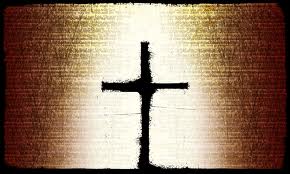The story of the life, death, burial, and resurrection of Jesus is at the core of Christianity. We believe this story is the great climax of history; it is the hinge point of all things because it is through Jesus that God brings new creation.
Easter speaks a better word than any other. Easter declares life, not death is God’s future, the reign of God is here. Easter proclaims that God is faithful to creation, and all of creation will be put right as the waters cover the sea. Easter sits at the center of the Christian story because we believe Easter is the salvation all of things.
But the logic of the Christian story does not begin and end at Easter. Ours is a story that follows the way of suffering. Holy week takes us to places we would not expect. We will follow Jesus to the upper room with a betrayer and the garden where the mob finally gets their man. The crowds will crowds cry, “Crucify Him,” and the crown of thorns will sink into Jesus’s head. Holy week leads us to cross, and demands that we look upon the tomb.
And the cross of Christ is a big deal. Jesus’ death was for us. On the cross, Jesus took our iniquities and atoned for our sins, but that is not all.
The writer of Hebrews reflects on the suffering and death of Jesus,
“And so Jesus also suffered outside the city gate to make the people holy through his own blood. Let us, then, go to him outside the camp, bearing the disgrace he bore. For here we do not have an enduring city, but we are looking for the city that is to come.”
Holy week reminds us that we are not called out of this earth; instead, we are called to follow Jesus outside the camp.
Douglas John Hall says, “Unlike religions that draw their converts away from the world, a faith informed by a theology of the cross constrains the community of discipleship to enter into its historical situation with a new kind of openness, attentiveness, and compassion.”
We are called right into the midst of the world, to be part of it. The crucifixion of Jesus was not simply a transaction for us; it is the heartbeat of our movement. We are to follow the way of crucified Messiah.
I am not sure what this looks like for everyone. It might mean standing with a friend against cyber-bullying. Or it might be volunteering your free time at a food pantry. This way of life might call you to full time ministry or maybe you will teach in an underperforming school. There are a million ways to move this into your life, but the logic of the Christian story runs this path. It demands that we suffer with those who find themselves outside of the camp. We can go here because we believe ours is a city that is to come.
This is faith. It is when you know deep in your bones that life is found outside the city with the outcast and the lame and the poor and the broken and the war tore and the homeless and the dirty and whoever has been pushed out by society. As Jurgen Moltmann says, “The theologian of the cross is led by the visible nature of God on the cross. He is freed to love that which is different and other.”




